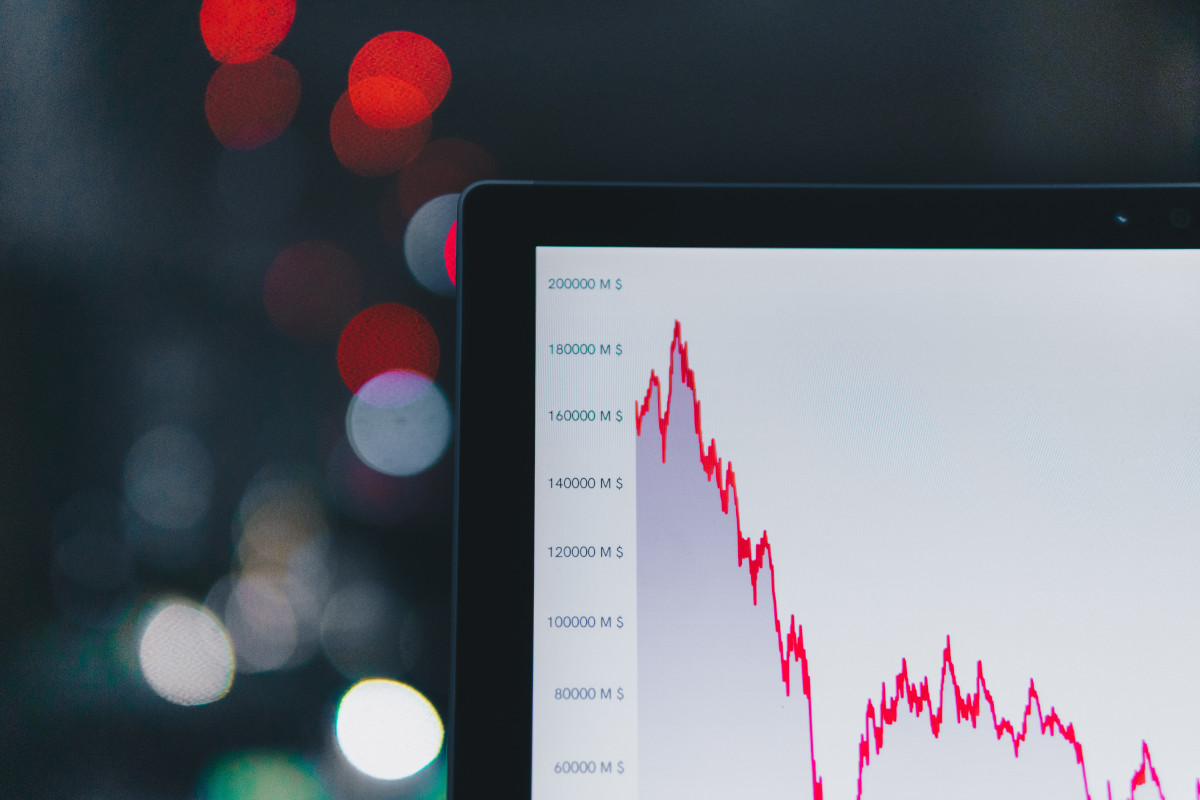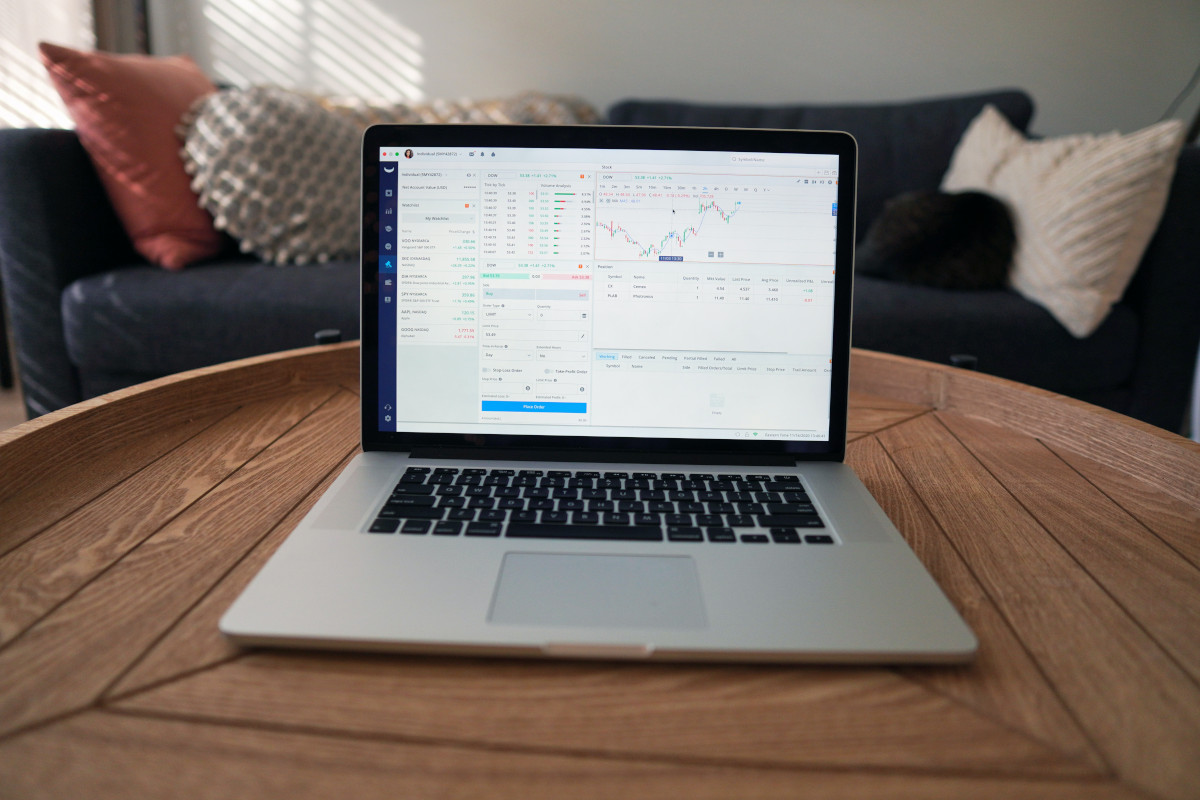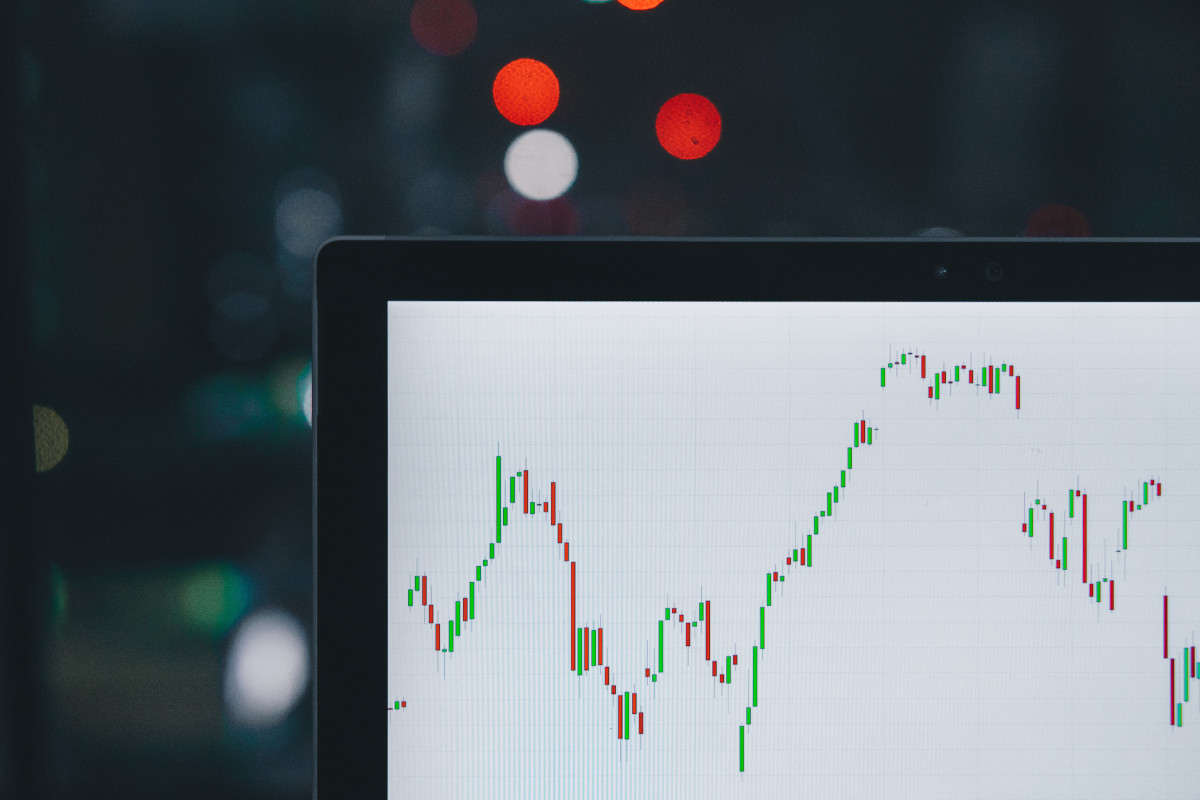Understanding the distinct characteristics of trading futures vs options is key to developing a robust investment strategy. Both offer unique advantages and come with their own set of complexities, making the choice between them pivotal for traders.
Options trading, with its flexibility and defined risk parameters, appeals to those seeking strategic depth, while futures trading, characterized by its obligation-based contracts and high liquidity, is often favored for straightforward market speculation.
Which is right for you, though? We’ll shed light on their workings, benefits, and challenges, helping you discern which aligns best with your trading objectives.
Regardless of whether you choose to trade options vs futures, though, remember that VectorVest can help you streamline your investment strategy by delivering clear, actionable insights in a simplified format.
Our stock forecasting software offers clear buy, sell, or hold recommendations for any given stock at any given time to help inform your options or futures trading strategy.
That being said, let’s start with the basics: what is futures trading vs options trading?
What is Futures Trading vs Options Trading?
Futures and options stand out as two popular but distinct strategies. Each offers unique opportunities and risks, and understanding the nuances between them is crucial for any trader looking to diversify their portfolio or hedge against market volatility.
An Overview of Futures Trading
Futures trading is all about the agreement to buy or sell a specific asset at a predetermined price at a future date. It’s like setting a financial date in the future, where you commit to a transaction regardless of the market conditions at that time.
This kind of trading is widely used by investors who want to lock in prices, especially in commodity markets. Think of a farmer who wants to secure a sale price for their crop months before the harvest; futures contracts make this possible.
One of the key aspects of futures trading is the obligation factor. Unlike options, when you enter into a futures contract, you’re obliged to fulfill the terms of the contract when it expires.
This can be a double-edged sword, though. On one hand, it can lead to significant gains if the market moves in your favor. On the other, the losses can be equally substantial if the market goes against you.
Futures are also known for their high liquidity, making them a favorite among traders who prefer quick entries and exits.
However, this kind of trading often requires a substantial margin and is typically more suited to experienced traders who understand how to navigate the complexities and risks involved. That being said, let’s introduce the other half of the options vs futures debate below.
An Overview of Options Trading
Options trading, on the other hand, offers a different kind of flexibility. When you trade options, you’re dealing with contracts that give you the right, but not the obligation, to buy or sell an asset at a predetermined price.
It’s like having a financial choice card: You can choose to play it (exercise the option) or not, depending on how the market fares. What happens when options expire, though? If you choose not to exercise the option, nothing! It expires worthless.
The beauty of options lies in their versatility. You can use them for various purposes – from hedging risks in your portfolio to speculating on future market movements. You can learn how to make money trading options the traditional way, how to short stock with options, or even how to sell stock options contracts themselves back to other investors.
Options are available in two primary forms: call vs put options. A call option gives you the right to buy an asset, while a put option gives you the right to sell it.
One of the major draws of options trading is the limited risk for buyers. The most you stand to lose is the premium paid for the option. This makes options an attractive choice for traders who are cautious about risk management.
However, the flip side is that options can be complex and require a deep understanding of various strategies to use them effectively.
We can help you get started on the right foot with guides on stock options for beginners, such as what is open interest options, taxes on options trading, what does it mean to exercise a stock option, what time do options expire, warrants vs options, and more.
But before you learn options trading, let’s find out if this is even the right strategy for you. It’s time to compare and contrast trading futures vs options below to see which best suits your goals!
Trading Futures vs Options: Which Strategy is Right For You?
Let’s be clear before we get into the options vs futures debate – each strategy has its place. It’s just a matter of determining which aligns best with your goals and preferences. So, let’s look at the key differences in trading options vs futures below based on profit potential, risk, and other factors!
Comparing Liquidity and Market Accessibility
Futures contracts, especially those for major commodities or indices, often boast high liquidity. This means large volumes of contracts are traded daily, making it easier to enter and exit positions.
Futures markets are generally accessible during extensive trading hours, providing ample opportunity for traders to engage. However, the range of available assets might be limited compared to options.
On the other hand, liquidity in options can vary significantly. Popular stocks tend to have highly liquid options markets, but less popular or more specialized underlying assets might have lower liquidity.
Options trading provides access to a broader spectrum of assets. You can find options on most traded stocks, allowing for a more diversified trading strategy.
If you value high liquidity and extended trading hours, futures might be your go-to. However, if you prefer a wider range of assets and don’t mind varying liquidity levels, options could be more appealing.
Risk Management: Which Offers Better Control?
All trading strategies carry some level of inherent risk. It’s important to choose a strategy that aligns with your unique risk tolerance.
The obligatory nature of futures contracts can result in higher risk, especially if the market moves unfavorably. Margin calls can also amplify losses.
Futures are often used for hedging against price movements in an underlying asset, providing a way to manage risk in broader investment portfolios.
Conversely, the defined risk for buyers is actually one of the biggest benefits of trading stock options. The maximum loss is the premium paid for the option, offering better risk control.
However, this isn’t true as it pertains to selling options. If you decide to write your own contracts, you must realize that your downside can be virtually unlimited. This is especially true for uncovered or naked options. Learn more in our guide to risk management option trading.
The key takeaway is this – if controlled, defined risk is a priority, options (especially buying them) offer clear limits. Futures, while useful for hedging, can entail more significant risks due to their obligatory nature.
Profit Potential: Analyzing Leverage and Returns
The whole point of trading any security is to earn income. So, which offers more profit potential? As with most things in life, it depends.
Futures contracts provide significant leverage, meaning you can control a large contract value with a relatively small amount of capital. While this can amplify profits, it also increases potential losses.
Profits in futures trading are generally straightforward. If the market moves in your favor, the potential for profit is directly proportional to the magnitude of the market move.
What about the other half of the options vs futures debate? Leverage in options trading depends on various factors like the option’s current price, the strike price, the options implied volatility, and the underlying asset’s price. It can be a powerful tool but requires a nuanced understanding.
There are also more ways you can earn profits through options. They offer diverse strategies like spreads, straddles, and strangles, which can generate profits from various market conditions, not just straightforward bullish or bearish moves.
In the end, this is a bit of a tossup. Futures offer high leverage with direct profit potential linked to market movements. Options, while offering leverage, provide more versatile strategies to profit from different market scenarios
So, Should You Trade Options or Futures?
So, which is better – trading futures vs options? Ultimately it comes down to your unique goals and risk tolerance. Here’s our advice on which strategy aligns best with you…
Opt for Futures If:
- You Prefer Straightforward Strategies: Choose futures if you’re comfortable with direct speculation on the price movement of commodities, indices, or financial instruments. Futures trading is more straightforward and suits those who prefer a less complex trading mechanism.
- You Are Comfortable with High Leverage: Futures offer high leverage, which means you can control a large contract value with relatively small capital. If you’re comfortable with the amplified risks and rewards that this leverage entails, futures could be your preferred choice.
- You Seek Hedging Opportunities: Futures are an excellent tool for hedging against price movements in an underlying asset, like commodities or currencies. If your primary goal is to hedge existing positions or your business relies on specific commodity prices, futures provide a valuable mechanism.
- You Have a Higher Risk Tolerance: Given the obligatory nature of futures contracts, they are well-suited for traders who are comfortable with potentially significant risks, including margin calls and large market swings.
Choose Options If:
- You Want Defined Risk and Flexibility: Options are ideal if you prefer to have a controlled, defined risk. The maximum loss in buying options is limited to the premium paid, offering better risk control compared to futures.
- You Enjoy Strategic Depth: Options trading allows for a variety of strategies, from simple speculative bets on market direction to complex combinations like spreads, straddles, and strangles. If you enjoy the intellectual challenge and strategic depth of crafting various trading strategies, options trading is suitable.
- You Are Seeking Versatile Profit Strategies: Options offer the flexibility to profit not just from straightforward bullish or bearish moves but from a range of market conditions, including stagnant markets.
- You Are a Conservative or Medium-Risk Trader: Options trading, particularly buying options, is more suited for traders who are either conservative in their risk approach or have a moderate risk tolerance.
Other Trading Strategies to Consider
Choosing between trading futures vs options is just one of the many comparisons we’ve unpacked here at VectorVest. The world of financial markets is vast, and there are so many other strategies to consider. Here are some similar guides we’ve compiled:
- Positional trading vs swing trading
- Scalping vs swing trading
- Timing the market vs time in the market
- Day trading vs swing trading
- Options trading vs stock trading
- Dollar-cost averaging vs buying the dip
- Growth investing vs value investing
We hope you feel clear as to what your next steps should be. But, remember – whether you choose to trade options vs futures, VectorVest empowers you to win more trades with less work!
Win More Trades With Less Work Using VectorVest Whether You Trade Options vs Futures!
While it’s known as the best swing trading platform, it can also empower you to perfect your options or futures trading strategy. So, how does VectorVest support your stock picking strategy – whether you’re looking for futures or trying to find options to trade?
Simple. You’re given clear, actionable insights through 3 simple ratings – relative value (RV), relative safety (RS), and relative timing (RT). Each sits on a simple scale of 0.00-2.00 with 1.00 being the average. This eliminates the need for complex, time-consuming analysis with stock indicators.
If you decide to trade options rather than futures, though, you’ll love our OptionsPro integration. It’s designed to enhance your options trading experience by offering powerful tools to identify the best buying and selling opportunities.
You can effortlessly pinpoint undervalued options, sell overvalued ones, and determine the most opportune time to maximize your premiums. Proprietary tools include theta decay charts, volatility studies, and specialized scans to find the options with the highest probability of success.
Beyond options, VectorVest offers a comprehensive suite of tools for futures traders. From real-time market analysis to trend predictions and risk management strategies, VectorVest equips you with everything you need to navigate the futures market confidently.
Its user-friendly interface and advanced analytics make it easier to spot market trends, manage risks, and capitalize on opportunities in the dynamic futures landscape.
Whether you’re a seasoned trader or just starting, VectorVest is designed to cater to all levels of experience and trading styles. Its versatile platform not only supports a wide range of strategies but also offers educational resources to enhance your trading knowledge. See firsthand what makes it the best app for stock analysis with a free stock analysis today!
Final Thoughts on Trading Futures vs Options
Trading futures vs options each presents unique opportunities and challenges. The choice between these paths hinges on your personal trading style, risk tolerance, and investment goals.
Futures offer straightforward, high-leverage market speculation, ideal for those comfortable with significant risks and direct trading strategies. Options, with their strategic versatility and defined risk parameters, cater to traders seeking flexibility and controlled exposure.
Learn more about when to sell options, the best time to exercise stock options, the best swing trading indicators, swing trade alerts, how to analyze a stock before buying, when to sell a stock for profit, investor sentiment, swing trading options, and other topics in our blog.
Whether you’re trying to find stocks to swing trade, the best ETFs, or futures vs options – VectorVest saves you time and stress, eliminating human error, guesswork, and wasted brainpower. You can win more trades with less work – what’s not to love about that?
Embrace our stock advisory today to navigate these complex markets with confidence, enhancing your decision-making process whether you choose.
What you should do next…
- Get our latest blogs delivered right to your inbox, subscribe to our newsletter.
- The market moves fast! Get our most current evaluation of this stock with our FREE stock analysis tool.
- Looking for stock picks? Not sure if now is the right time to buy/sell? For a limited time, enjoy the full benefits of a 30-day subscription to VectorVest for only $0.99 (usually up to $148/month) . Get access to our full list of screeners showcasing our top stock picks that tell you exactly what to buy, when to buy, and when to sell.








Leave A Comment